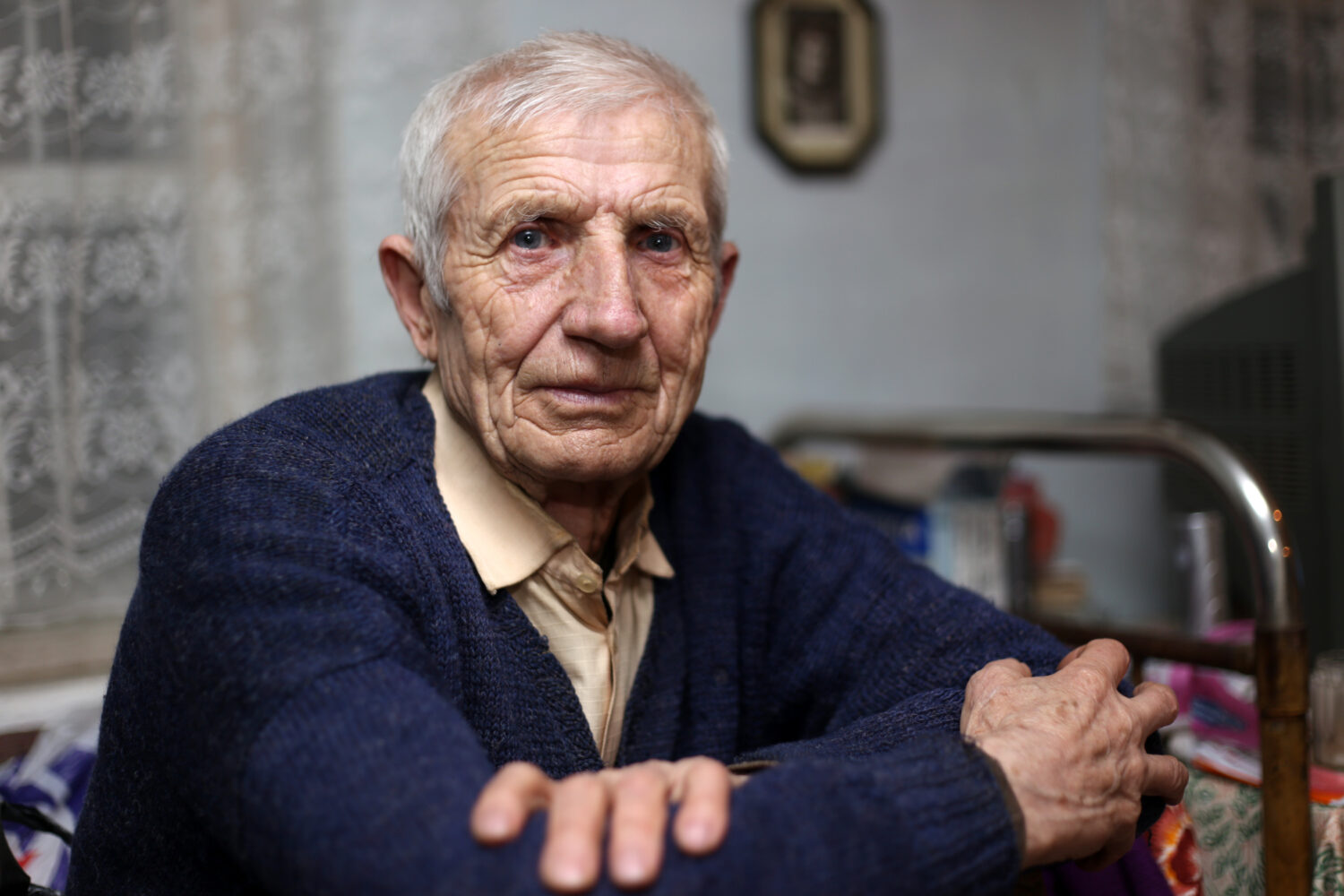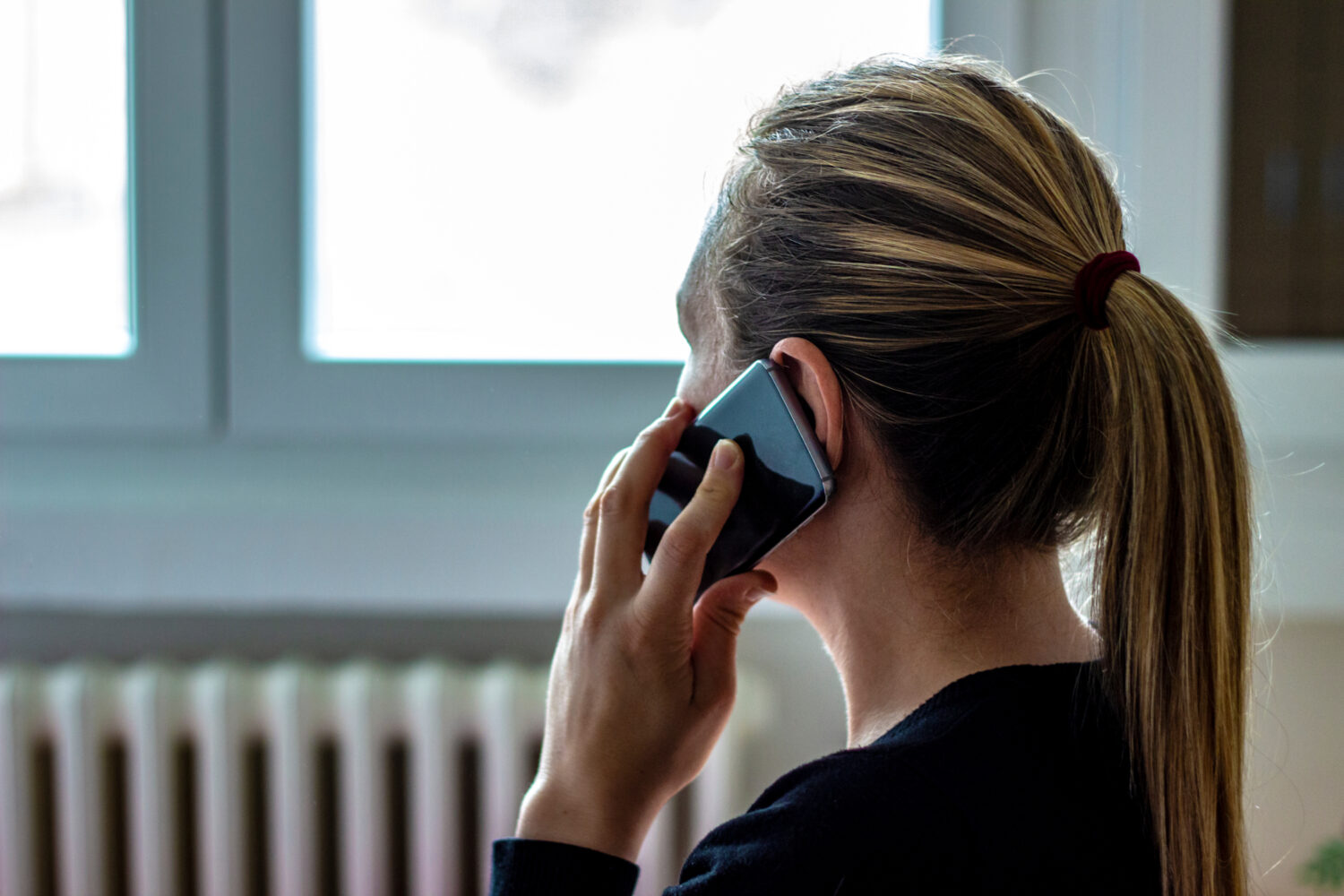
Elderly abuse
Elderly abuse are acts or omissions that cause an elderly person to suffer in a relationship of dependence. Elderly abuse often starts small. Like grabbing someone firmly if they don’t listen. Or going shopping with someone else’s household money. The elderly are vulnerable to a wide variety of abuse. Often they find it difficult to talk about a situation of abuse or violence. The abuse is not always intentional. Sometimes, people can no longer handle the care for their loved ones or clients or find themselves in a situation they can’t control or that is too much for them. In such a situation, their behaviour can derail, resulting in abuse. In all cases, it is important to talk about it.
Forms of elderly abuse
Elderly abuse occurs in many different ways. Specific forms of elderly abuse are physical abuse, psychological abuse, financial abuse, neglect and sexual abuse.
Financial abuse
Financial abuse is the inappropriate/unauthorised use of an elderly person’s assets (money and property). The abusers are often family members, informal carers, professionals or volunteers or ‘new friends’ from the immediate environment of the elderly person.
Elderly people living alone are often particularly vulnerable. All kinds of physical and mental limitations can be a reason why the elderly have someone else look after their financial interests. Financial abuse usually starts small, but can quickly become serious.
There are different forms of financial abuse, such as:
- taking money, jewellery and goods;
- selling properties against one’s own will;
- abuse of mandates and/or unauthorised use of debit cards;
- making purchases in the name of the victim;
- forced change of will and testament or mortgage withdrawal;
- imposing financial limitations and abuse of accounts.
Emotional/psychological abuse
Emotional or psychological abuse occurs when family members or guardians torment, bully, harass, threaten (for example with placement in care), call names, intimidate, make false accusations, insult or order the elderly person around. Humiliation, undermining self-confidence and psychological pressure are deemed psychological abuse as well. This leads to feelings of fear, anger, sadness, shyness, confusion or apathy within the elderly person.
Sexual abuse
Sexual abuse involves performing sexual acts with or in the presence of the elderly person, against the wishes of the elderly person. Elderly people can be victims of, among other things, exhibitionism, groping and rape.
Derailed informal care
An informal caregiver is someone who provides long-term, unpaid care for an elderly person who needs help. For example, for an elderly person who is chronically ill or disabled or who can no longer take care of himself or herself. The informal caregiver is not a professional care provider, but provides the care because he has a personal bond with the elderly person.
Informal care is deemed derailed when a caregiver, due to overload, ignorance, a lack of knowledge or powerlessness, unintentionally exceeds the boundaries of the caregiver, provides inadequate care, neglects or otherwise inflicts damage. Good care gradually turns into neglect, mistreatment or even abuse.
Physical abuse
Physical abuse includes all forms of physical violence, such as hitting, kicking, biting, pinching, scratching, masking the mouth, pulling hair or inflicting burns. Sometimes, the elderly person is tied to a chair or bed. A less visible form of physical abuse is underdosing or overdosing on medication, such as sleeping pills.
Neglect
In the case of physical neglect, the elderly person does not receive the care and attention he/she needs and is entitled to given his/her age and state of health. Examples include insufficient, poor or irregular nutrition, or inadequate personal or household hygiene. Psychological neglect occurs when the elderly person’s spiritual needs are ignored, such as the need for attention, love, emotional care and respect.
Are you affected by elderly abuse?
This is what you can do!
Are you affected by elderly abuse? Do not remain passive. Making sure that the violence stops is sometimes a step too far, because you no longer know how to change the situation or are afraid to talk about it.
It is important that your home becomes safe again and that help is available for all, because the violence doesn’t stop by itself. Someone has to take that first step! Is that you?
Contact Safe Home
Safe Home is for everyone who is directly or indirectly affected by domestic violence, including elderly abuse.
You can call for advice and support. This can either be for yourself or for someone else. You’ll speak to an employee who will listen carefully to what you have to say. This employee answers questions and gives advice. The employee will check with you whether professional help is needed and what help is best. You can remain anonymous if you want or need to.
Sometimes, it quickly becomes clear what the problems are and what help is needed. In that case, we will refer you to the right service or organise the right help for you. Sometimes, the problem is not clear and therefore that needs to be established first. Safe Home does this together with the people concerned, as much as possible. But if that is not possible, Safe Home can also conduct an investigation without the consent of those involved, should this be necessary for the safety of the elderly person(s) or adults.
Are you in doubt? Call us or chat, anonymously if you want, for advice. Nothing changes if you don’t!
If you want to report elderly abuse, contact Safe Home in that case as well. You can report anonymously without the knowledge of those directly involved, but Safe Home does record your details.
Talk about it with someone you trust
Talking to someone close to you is an important first step. Often, there are more people willing to help you than you think. A close friend, family member or a neighbour who you trust. Whatever is best for you. Once you’ve taken that first step, you’ll find that getting things off your chest feels good. In addition to opening up to this person, you can also ask if he or she will come along with you to a relief agency.
You can also contact luisterlijn.nl or call 0900-0767 (available 24/7).
The elderly can also call the Senior Citizens’ Association at 0348-466-666 (from 11am to 9pm each day) or chat with the National Foundation for the Elderly: Helpdesk Welcome Online 088 344 2000 (Mon to Fri: 9am to 5pm)


Need help right away? Call the police!
Emergency? Call 112.

What happens when I call?
- We listen to your story
- You get advice
- We will look for help together
CALL (FREE)
0800-2000
You can contact us 7 days a week, 24 hours a day (for free).
This is what you can do if you are worried about someone else
Contact Safe Home
If you have strong suspicions that someone is a victim of elderly abuse, you must report this. The elderly and/or informal caregivers often feel powerless, afraid or ashamed. Because they are afraid to talk about it themselves, it is very important that you do something about it when you notice signs of elder abuse. It is important that the situation becomes safe again and that help is available for all, because the violence doesn’t stop by itself. Someone has to take that first step!
You can contact Safe Home for advice and support. You can call us (0800-2000) or chat with us.
If you want to report elderly abuse, contact Safe Home in that case as well. You can do so by completing the report form for professionals or by telephone.
Talk to the people involved
Talking to the people you are worried about is a big step. You often don’t know what is going on exactly. And you don’t want to hurt the other person’s feelings. In addition, the victim or elderly abuser may feel ashamed and wants to keep it secret. It is also possible that your concerns were unjustified. Still, it is better to find out. If the case does involve elderly abuse, you can discuss together how you can do something about it.
Tips on how to start a conversation:
- Start the conversation by talking about something light and simple, so the elderly will feel at ease.
- Ask open questions about things you have noticed. Let the elderly person talk about it him-/herself. Avoid questions such as ‘did you find it uncomfortable?’, but rather ask ‘I noticed …, how did you feel about it?’.
- Avoid using the word ‘abuse’.
- Avoid saying bad things about the family of the elderly. It doesn’t help to judge. People are very loyal to their family and friends, and will be inclined to defend them.
- Stay calm in case the elderly becomes emotional during the conversation, try to get him or her to ‘the here and now’ with a practical question about e.g. the weather or coffee.
- Don’t make promises you cannot keep. Never promise that you will keep a secret – to be able to help the elderly, you will probably need help or advice of others. Instead, ask the elderly person if you may try to help him or her.
- End the conversation with a light topic, such as plans for the afternoon or the weekend.
Need help right away? Call the police!
Emergency? Call 112.
